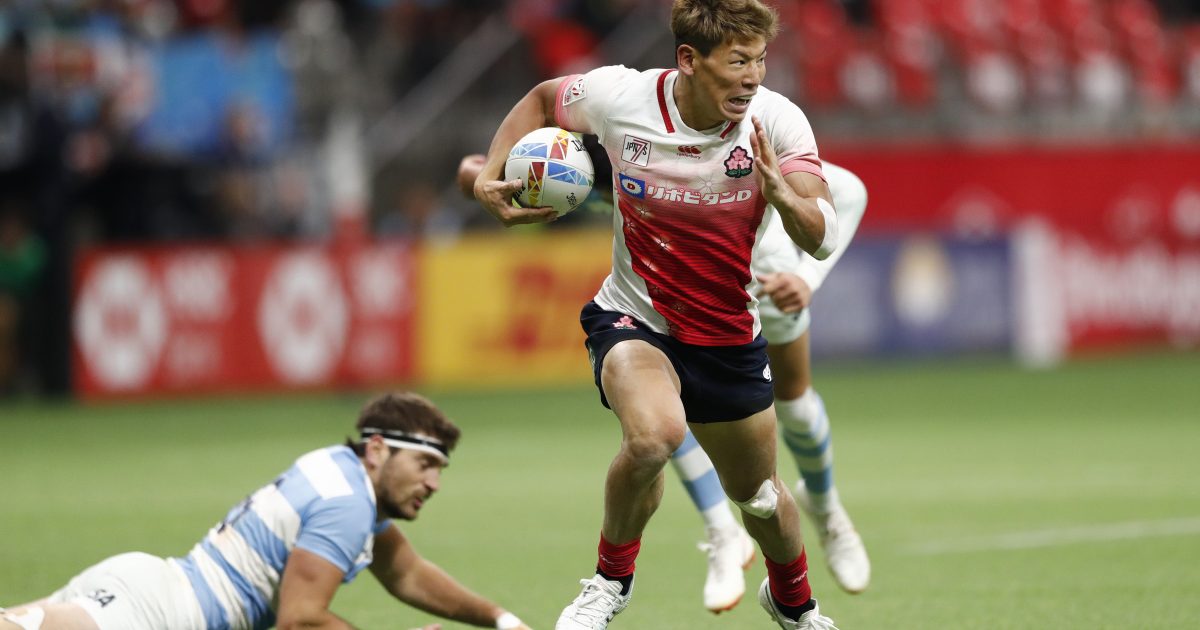Japon : rugby à sept, objectif médaille à Paris 2024

Leur place assurée dans les tournois masculin et féminin des Jeux olympiques de Paris 2024, les joueuses et joueurs du Japon se sont donné pour objectif de revenir de France avec une médaille.
Le Japon s’est assuré de faire d’une pierre trois coups pour figurer dans les deux tournois olympiques au début du mois de novembre, en remportant les qualifications masculines et féminines de Asia Rugby à Osaka.
A deux doigts d’une médaille en 2016
Le pays est passé tout près d’une médaille lorsque le rugby à sept a fait ses débuts aux Jeux de Rio 2016, les Japonais s’inclinant dans le match pour la médaille de bronze contre l’Afrique du Sud au Deodoro Stadium.
Cinq ans plus tard, l’équipe a terminé à une décevante 11e place chez elle, tandis que les Sakura Sevens ont terminé le tournoi féminin à la 12e place, après avoir été 10e à Rio.
Cependant, les deux équipes espèrent entrer dans l’histoire et gagner une place sur le podium lorsque les médailles seront remises au Stade de France en juillet 2024.
« Lorsque j’ai participé aux Jeux olympiques de Tokyo, nous avons fini [par] obtenir des résultats décevants dans notre pays et je me suis sentie frustrée », exoplique Yume Hirano, capitaine des Sakura Sevens.
« J’estime avoir une dette olympique à rembourser sur la scène des Jeux olympiques. »
Nouvelle chance à Paris
Le capitaine de l’équipe masculine, Taisei Hayashi, pense que les Jeux de Paris offrent une nouvelle occasion de renforcer l’image du rugby à sept au Japon.
« Le fait de s’être qualifié pour les Jeux Olympiques – la meilleure vitrine du sport – est formidable pour nous. Je pense que cela va aider à développer le rugby à sept au Japon dans les jours, les semaines et les mois à venir.
« J’espère que nous pourrons obtenir de bons résultats et gagner une médaille à Paris. J’ai le sentiment positif que notre équipe se renforce et je profite de chaque défi et de chaque expérience.
« Je veux continuer et relever un grand défi aux Jeux olympiques. »
Wakaba Hara, qui a marqué deux essais en cinq sélections avec les Sakura Sevens à Tokyo 2020, a été encouragée par l’expérience de la qualification à domicile et est impatiente de faire découvrir ce sport à un public plus large l’année prochaine.
Une vitrine à domicile
« Ce qui me réjouit vraiment, c’est qu’en nous qualifiant pour les Jeux olympiques, nous avons pu nous assurer une place pour être regardés par les gens », a-t-elle déclaré.
« Cette fois, nous avons joué le tournoi de qualification à domicile et ça nous a donné l’occasion de montrer le rugby à sept à beaucoup de gens ici [au Japon].
« J’espère maintenant que nous pourrons nous rassembler, non seulement les joueurs mais aussi les supporters, pour travailler dur afin de remporter une médaille aux Jeux olympiques. »
Les Sakura Sevens se prépareront pour leur troisième participation aux Jeux en affrontant les meilleures équipes du monde lors du HSBC SVNS 2024.
Le Japon a terminé en force les HSBC World Rugby Sevens Series 2023 féminines, en battant l’Irlande pour décrocher la cinquième place lors du HSBC France Sevens à Toulouse.
Il s’agit de leur meilleur résultat dans un tournoi des Series et la capitaine Hirano est convaincue que l’équipe continuera à s’améliorer au cours de la prochaine saison des SVNS, qui débutera à Dubaï ce week-end.
« Nous serons préparées à affronter les meilleures équipes du monde lors des prochaines World Series et cela, je crois, nous aidera à nous préparer à remporter une médaille aux Jeux olympiques », assure-t-elle.


